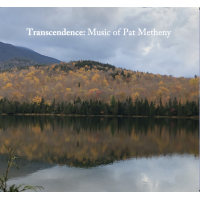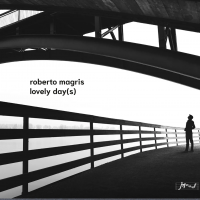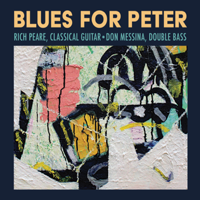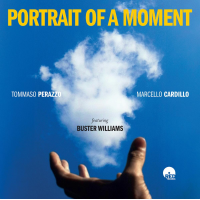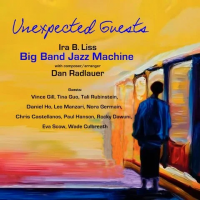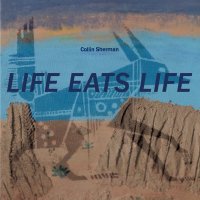Home » Jazz Articles » Album Review » Darrell Katz and the JCA Orchestra: Rats Live on No Evil Star
Darrell Katz and the JCA Orchestra: Rats Live on No Evil Star

Darrell Katz
composer / conductorb.1951
For the benefit of those who may be perplexed by what they are hearing, it should be noted at the outset that Katz and his colleagues have a plan and know what they are about; it may simply be uncoupled from some listeners' normal frame of reference. In other words, this is jazz but not the kind one generally associates with such canonical big bands as, say, Basie, Herman or even Ellington. There is melody and harmony, coexisting with what many listeners unfamiliar with the framework might reasonably impugn as dissonance. And they wouldn't be far from the mark, even though it is cacophony with a purpose. No matter how anyone gauges the result of his endeavor, the fact remains that Katz is a topnotch musician—if not, he couldn't have taught for nearly three decades at Boston's well-respected Berklee School of Music. When composing the songs for Rats Live on No Evil Star, Katz wasn't simply pulling notes out of a hat. No, the notes, phrases and themes were well-chosen; let the responses to them fall as they may.
The title song, which opens the album, is one of two "concertos" for violin, marimba and jazz orchestra, and was commissioned in 1987 for

George Schuller
drumsb.1958

Rebecca Shrimpton
vocalsPerhaps the most "orthodox" numbers on the album are the last two, "Red Dog Blues" and "Red Sea," the first of which features vocalist
Alizon Lissance
accordionTrack Listing
Rats Live On No Evil Star; How To Clean a Sewer: Three Or Four Kinds Of Blues / Winndfall Lemons / Attention; To An Angel; Prelude / Hiro Runs The Devil Down; The Red Dog Blues; Red Sea.
Personnel
Darrell Katz
composer / conductorDarrell Katz: composer, conductor, arranger, guitar (8); Helen Sherrah-Davies, Mimi Rabson: 5-string violin (5); Vessela Stoyanova: marimba, vibraphone; Rebecca Shrimpton: voice; Hiro Honshoku: flute, piccolo, EWI; Rick Stone: alto sax, clarinet; Ken Field: alto sax; Phil Scarff: tenor sax, soprano sax, sopranino sax, clarinet; Melanie Howell-Brooks: baritone sax, bass clarinet; Jeff Classen, Paul Meneghini, Water Platt: trumpet; Jim Mosher: French horn; Bob Pilkington, David Harris, trombone; Bill Lowe: tuba, bass trombone; Mike Conner: drums; John Funkhauser: bass; Norm Zocher: guitar; Ricardo Monzon: percussion; Hey Rim Jeon: piano; Alizon Lissance: voice (7), piano (8); Ralph Rosen: blues harp (7); Juno Fujiwara: cello (5).
Album information
Title: Rats Live on No Evil Star | Year Released: 2018 | Record Label: JCA Recordings
Tags
Comments
PREVIOUS / NEXT
Support All About Jazz
 All About Jazz has been a pillar of jazz since 1995, championing it as an art form and, more importantly, supporting the musicians who make it. Our enduring commitment has made "AAJ" one of the most culturally important websites of its kind, read by hundreds of thousands of fans, musicians and industry figures every month.
All About Jazz has been a pillar of jazz since 1995, championing it as an art form and, more importantly, supporting the musicians who make it. Our enduring commitment has made "AAJ" one of the most culturally important websites of its kind, read by hundreds of thousands of fans, musicians and industry figures every month.








 Buy Now
Buy Now

